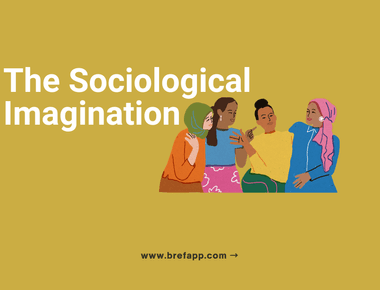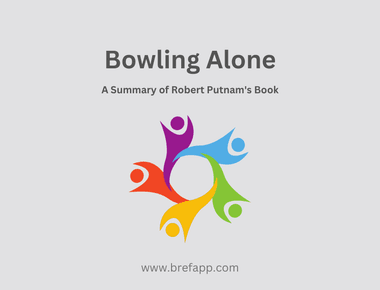
Feminist Theory: Its History, Core Concepts, Applications, and Continued Relevance for a More Equitable Society

Feminist theory is a body of ideas that seeks to understand the ways in which gender inequality affects individuals and society as a whole. It emerged as a response to the feminist movements of the late 19th and early 20th centuries, and has since developed into a rich and diverse field of study. Feminist theory is important in both society and academia because it sheds light on the pervasive impact of patriarchy and gender inequality, and provides a framework for understanding and addressing these issues.
In this article, we will explore the key concepts and debates within feminist theory, its historical development, and its practical applications. We will also examine some of the criticisms that have been leveled against feminist theory, and reflect on its ongoing relevance in the fight for gender equality.
History of Feminist Theory
Feminist theory has its roots in the feminist movements of the late 19th and early 20th centuries, which sought to achieve political, social, and economic equality for women. These early movements were primarily focused on securing the right to vote and access to education and employment.
As feminist movements grew in size and influence, so too did the body of ideas that came to be known as feminist theory. In the early 20th century, feminist theorists began to develop more nuanced and complex understandings of the ways in which gender inequality is perpetuated. Key figures during this period included Simone de Beauvoir, who wrote the landmark text “The Second Sex” in 1949, and Betty Friedan, whose book “The Feminine Mystique” sparked the second wave of feminism in the United States in the 1960s.
Throughout the latter half of the 20th century, feminist theory continued to evolve and diversify. Different schools of thought emerged, each with its own unique approach to understanding gender inequality. These included liberal feminism, which sought to achieve gender equality through legal and policy reforms; radical feminism, which argued that gender inequality was deeply embedded in society and required fundamental societal change; and postmodern feminism, which emphasized the importance of language and discourse in shaping our understanding of gender.
Today, feminist theory continues to develop and adapt to changing social, political, and cultural contexts. Some of the most recent branches of feminist theory include queer theory, which explores the intersections of gender and sexuality, and intersectional feminism, which highlights the ways in which multiple forms of oppression intersect to shape individuals’ experiences.
Core Concepts of Feminist Theory
Feminist theory encompasses a wide range of ideas and approaches, but there are several core concepts that are central to most feminist analyses. These include:
- Patriarchy: Feminist theory argues that gender inequality is rooted in the social, cultural, and political systems of patriarchy, which prioritize men and masculinity over women and femininity. Patriarchy creates a system of unequal power relations that shape women’s experiences in a variety of ways.
- Gender roles and stereotypes: Feminist theory also emphasizes the importance of understanding the ways in which gender roles and stereotypes shape our perceptions of gender and influence our behavior. Feminist theorists argue that these cultural constructs can be restrictive and limiting, and that breaking down these barriers is essential to achieving gender equality.
- Intersectionality: Intersectionality is a concept that highlights the ways in which different social identities intersect to create unique experiences of oppression and privilege. For example, a woman who is also a person of color may face different forms of discrimination than a white, straight woman. Understanding intersectionality is crucial to developing a more nuanced and inclusive understanding of gender inequality.
- Power dynamics: Power dynamics are a central focus of feminist theory, as they play a crucial role in shaping women’s experiences of gender inequality. Feminist theorists argue that power is not evenly distributed in society, and that gender is just one of many factors that shape power dynamics. Understanding how power operates in society is essential to developing effective strategies for combating gender inequality.
By understanding these core concepts of feminist theory, we can develop a more nuanced and complex understanding of the ways in which gender inequality operates in our society. This, in turn, can help us develop more effective strategies for achieving gender equality.
Criticisms of Feminist Theory
While feminist theory has been instrumental in highlighting the pervasive impact of gender inequality and patriarchy, it has also faced criticism from a variety of sources. Some of the most common criticisms of feminist theory include:
- Arguments against feminism: There are those who argue that gender inequality is not a real issue, or that feminism has gone too far and is now harming men. Others suggest that feminism is only relevant for a small subset of women and that it fails to take into account the experiences of women who do not fit the traditional mold of a feminist.
- Critiques from within feminist theory: Feminist theory is not immune to internal critique, and there are a number of scholars who argue that certain aspects of feminist theory are problematic. For example, some have argued that feminist theory has been overly focused on the experiences of white, middle-class women, and that it has failed to take into account the unique experiences of women of color or working-class women.
- The importance of self-reflection: Feminist theorists recognize that self-reflection and ongoing critical analysis are crucial to the continued growth and development of feminist theory. In order to be effective, feminist theory must be able to adapt to changing social, political, and cultural contexts, and this requires a willingness to engage in ongoing dialogue and self-reflection.
While there are certainly valid critiques of feminist theory, it is important to remember that these critiques do not negate the ongoing relevance and importance of feminist theory in today’s world. By engaging with these critiques and remaining open to ongoing dialogue and self-reflection, feminist theorists can continue to develop and adapt their ideas in response to changing social, political, and cultural contexts.
Applications of Feminist Theory
Feminist theory has had a profound impact on a wide range of fields, including sociology, psychology, literature, and many others. Some of the key areas where feminist theory has been applied include:
- Sociology: Feminist theory has played a key role in challenging traditional sociological theories that failed to account for the experiences of women. By highlighting the pervasive impact of patriarchy and gender inequality, feminist theorists have developed new approaches to studying social phenomena and have helped to illuminate the ways in which gender shapes our social, cultural, and political systems.
- Psychology: Feminist theory has also had a significant impact on the field of psychology, challenging traditional models of human development and mental health that were based on a male-centric view of the world. Feminist psychologists have developed new approaches to understanding gender and mental health, and have worked to develop more inclusive and effective therapeutic practices.
- Literature: Feminist theory has played a key role in transforming the study of literature, challenging traditional interpretations of classics and highlighting the ways in which gender and power texts shape our understanding of literature. Feminist literary critics have also worked to promote the work of women writers and to expand our understanding of the role of gender in literary production.
In addition to these academic applications, feminist theory has also been used to inform a wide range of practical interventions in areas such as politics, education, and the workplace. Some of the key practical applications of feminist theory include:
- Politics: Feminist theorists have played a key role in shaping political movements aimed at achieving gender equality and challenging patriarchal power structures. This has involved advocating for policies that support women’s rights and representation in government, as well as working to shift cultural norms and attitudes around gender and power.
- Education: Feminist theory has also been used to inform educational practices that promote gender equality and challenge gender-based stereotypes and biases. This includes interventions aimed at reducing gender gaps in academic achievement, as well as promoting more inclusive and equitable educational environments.
- Workplace: Feminist theory has also been used to inform interventions aimed at promoting gender equality in the workplace, such as equal pay policies, parental leave policies, and anti-discrimination measures. By challenging patriarchal power structures and promoting gender equality, feminist theory has helped to create more equitable and just workplaces for women.
By applying feminist theory to these practical contexts, we can work to create more equitable and just societies that promote the well-being and empowerment of all individuals, regardless of gender.
FinalThoughts
Feminist theory has played a vital role in challenging patriarchal power structures and promoting gender equality across a wide range of fields. By highlighting the pervasive impact of gender inequality and patriarchy on our social, cultural, and political systems, feminist theorists have developed new approaches to understanding gender and power that have transformed our understanding of the world.
Despite the critiques that feminist theory has faced, it remains a crucial tool for understanding and challenging gender inequality in today’s world. By continuing to engage with feminist theory and working to adapt it to changing social, political, and cultural contexts, we can work towards a more equitable and just society that promotes the well-being and empowerment of all individuals, regardless of gender.
Feminist theory is an indispensable tool for understanding and challenging gender inequality and patriarchy in all their forms. By continuing to engage with feminist theory and working to apply its insights to practical contexts, we can work towards a more just and equitable world for all.
Tags
Related Posts





Quick Links
Categories

